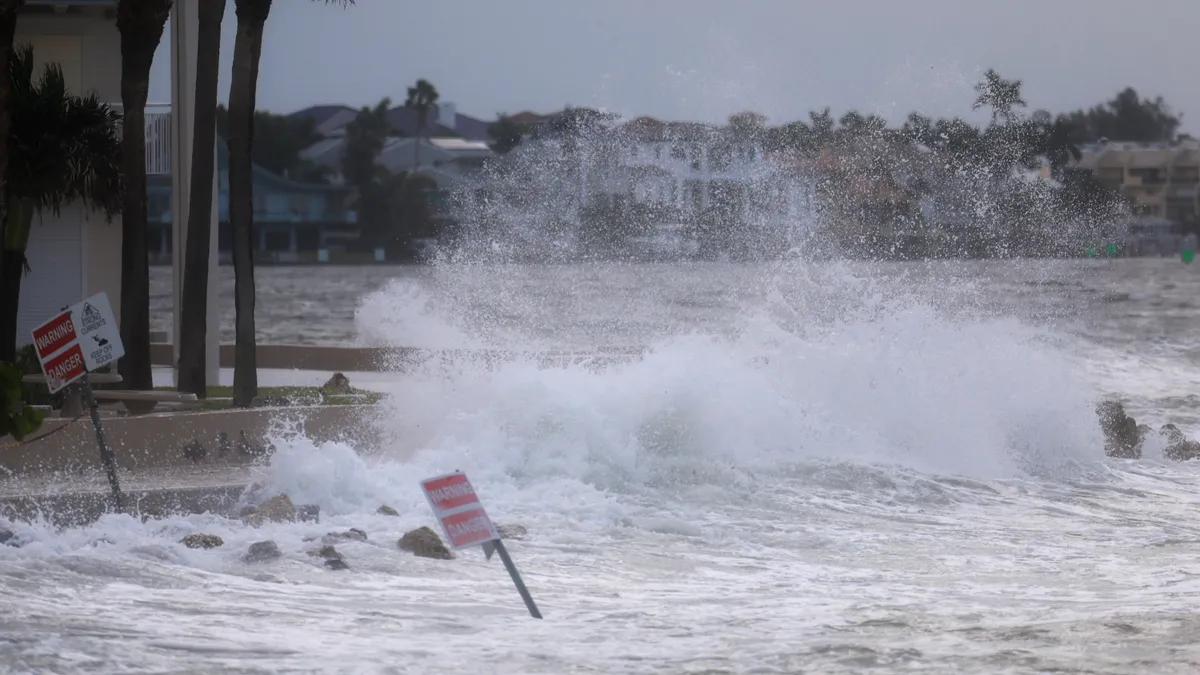Millions of Southeastern U.S. customers were without power Friday morning after Hurricane Helene hit Florida as a Category 4 storm and moved inland.
By 5 a.m., the National Hurricane Center had downgraded Helene to a tropical storm and warned of damaging wind gusts across the Carolinas and Georgia and the potential for “catastrophic and life-threatening flash and urban flooding” across portions of the southern Appalachians. Flood warnings were also issued for parts of Florida.
Data from PowerOutage.us, shortly after 9 a.m. EDT, showed 1.14 million customers in Florida without service, as well as 1.1 million in Georgia, 1.4 million in South Carolina and more than a half million in North Carolina.
By 6 a.m., Florida Power & Light said it had restored power to more than 460,000 customers, more than 65% of those impacted by the storm.
“Though our system held up well and our team of thousands continues to work around-the-clock, some of our customers remain without power,” FPL President and CEO Armando Pimentel said in a statement. “To them, we have a simple message: We will not stop until your lights are back on.”
Along with its restoration efforts, FPL said it was continuing to assess damage, including by using drones, which it said could speed recovery times, and it was coordinating with local emergency management officials to clear roads for lineworkers.
Duke Energy said Friday morning that it had restored power for almost 200,000 customers in Florida — but it still had more than 400,000 customers without power.
“Our crews worked through the night to assess the immense damage caused by Hurricane Helene and get the lights back on where conditions allowed,” Todd Fountain, Duke Energy Florida storm director, said in a statement. “We’ve made significant progress over the last 24 hours, but we still have a lot of work ahead of us.”
Recovery operations were being aided by mutual assistance crews from 27 states and the District of Columbia.
Nearly 50,000 workers were staged in strategic locations prior to landfall, the Electricity Subsector Coordinating Council said Thursday. The council works as a liaison between industry and the federal government to coordinate response efforts to national-level incidents and threats.















